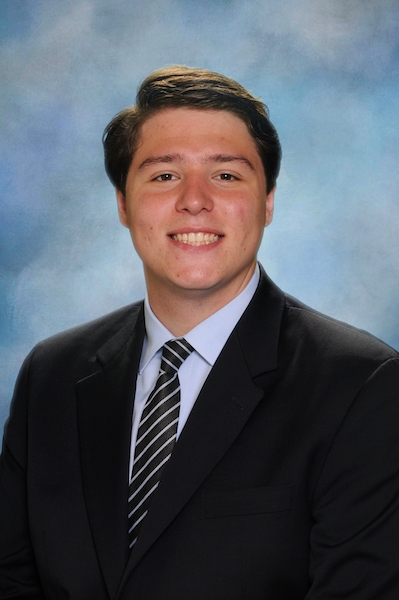New York State
What the leader of the SUNY Student Assembly thinks about Jim Malatras
Bradley Hershenson says students are ready to help lead efforts to find a new chancellor at a pivotal time for public colleges.

SUNY students have been some of the most outspoken critics of SUNY Chancellor Jim Malatras. Office of Former Gov. Andrew Cuomo
SUNY students have been some of the most outspoken critics of SUNY Chancellor Jim Malatras ever since the Board of Trustees announced his hiring last year. They were also among the earliest voices calling for his resignation – now effective Jan. 14 – following recent revelations about his reportedly profane and arguably sexist way of doing business. So young people in particular got their reasons to think that university and state leaders ought to listen to them more moving forward.

The SUNY Student Assembly represents pupils of all ages across the 64-campus system, but teens and 20-somethings make up the bulk of 370,000 or so members who study full time. They have also been particularly vocal on a range of issues affecting the university – including how its leadership could be better accountable for their words and actions. They are planning to focus their energy moving forward on a variety of fronts, according to Student Assembly President Bradley Hershenson. This includes engaging in a national search for a new chancellor and working with elected officials to make college more affordable.
City & State spoke with Hershenson Thursday morning to get an early reaction to Malatras’ resignation and what students are thinking about how best SUNY can move forward. This interview has been edited for length and clarity.
What do you think about Malatras’ resigning?
At the end of the day, the student voices, and particularly the voices of the elected student leaders, are what matters most, because we pay the tuition. We feel that we should have a leader who has a strong moral character, academic credentials and background. And we look forward to working with the board on a nationwide search. What I’ve been hearing the most from students this morning is: ‘How can we get involved?” We unfortunately did not have that opportunity previously.
Why did the issue of his recently-revealed text messages resonate so much with Gen-Z students in particular?
I heard from so many students across the system. I heard from students out on Long Island, I heard from students in Buffalo, Plattsburgh – every campus was making their voices heard within our elected student body. It's just so important that we have a leader who's going to respect women and that was the sentiment that I heard from students over what feels like almost the past two weeks. We're just proud that his resignation has finally come to fruition, that the students’ voices have been heard, and that action has been taken.
The Board of Trustees did not agree with that based on the supportive letter they sent calling on him to stay. You’re on the board, were you consulted?
I did speak with the chair and a handful of other folks before that was released. I made sure to bring forward what I was hearing from students. It was the same sentiment, every single campus, particularly women and mothers.
I assume your points were not included in the final version of the letter?
No.
What is most important for SUNY moving forward?
We need investment. And the reason I use the word investment is because when we invest public funding into SUNY, that money goes directly back into the state economy. We need operating support so we can open up more and expand our childcare centers. We can have food pantries available on every single campus and enhanced training for faculty and staff to make inclusive workspaces and inclusive environments for students. There's so much that needs to be done in the area of disability resources. All of that is going to help our students graduate on time and successfully.
And lastly, what is the bottom line for students in the upcoming months?
We're going to fight for Excelsior and other programs and other scholarships to cover transportation, food and housing and textbooks and laptops. That is what students have to pay for. Those are the real costs associated with pursuing a degree. Last year, we froze tuition with the legislature for three years. We got a tuition freeze. Now what we'd like to do is go from freeze to free, and work with the Legislature to make tuition free across public higher education.

